Rajasthani Legends
Pushkar Rajasthan
Mother Masala Tours
Pushkar Rajasthan: Creation's First Light
Pushkar Rajasthan. Ancient texts tell of Brahma's lotus falling from the cosmos, creating this holy lake where "pushpa" - flower, met "kar" - hand. Located in the Ajmer district, Pushkar emerged as a spiritual center in the 4th century BCE. The Chauhan Dynasty Rajputs established the first temples in 350 CE, beginning centuries of royal patronage. When Mughal Emperor Akbar gifted the region to Hindu priests in 1585, he cemented its sacred status. Today, 21,965 residents maintain traditions around 52 Ghats and 500 temples. The annual Camel Fair transforms this serene town as 200,000 pilgrims gather, while daily rituals continue unchanged since vedic times.
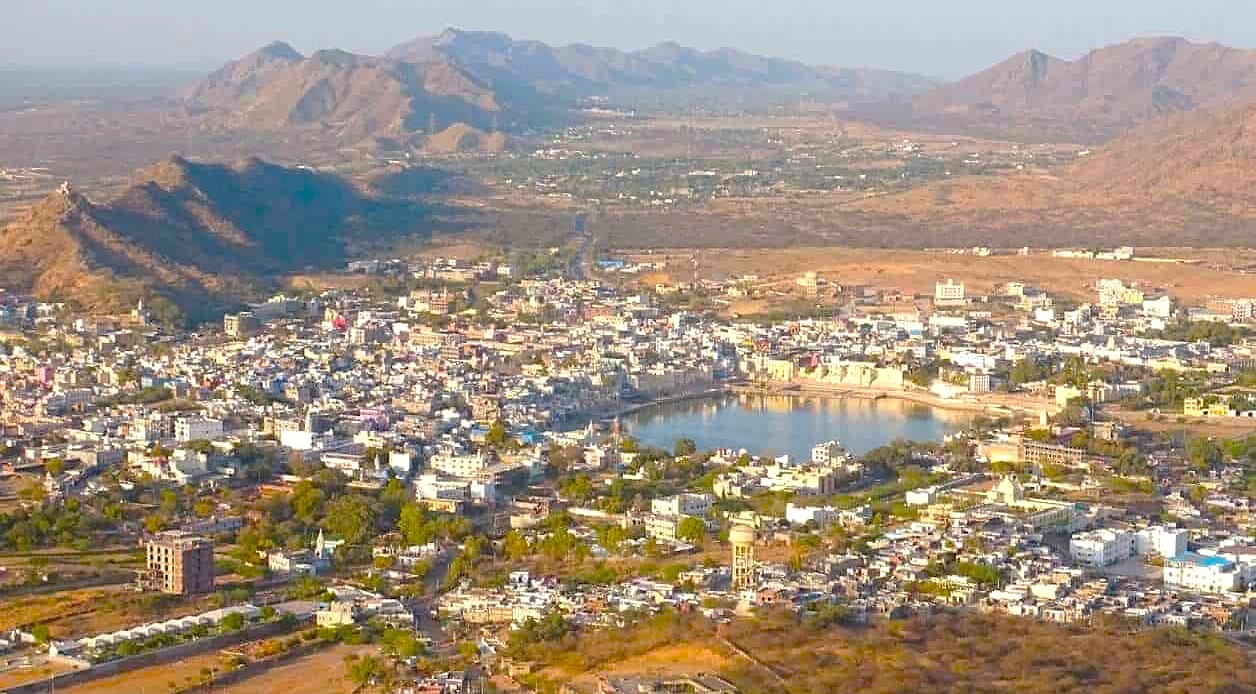
Pushkar Rajasthan: Divine Waters
Pushkar Rajasthan. Built between 1042 and 1560 CE, mark where Brahma's lotus first touched Earth. Varah Ghat, oldest among them, bears intricate carvings depicting celestial dancers from 1042 CE. Man Mandir Ghat, commissioned by Raja Man Singh in 1560, features astronomical markers used for calculating sacred dates. Hidden shrines contain Gupta Dynasty era artifacts revealing ancient worship practices. Each stone step carries centuries of prayers while Sanskrit inscriptions tell tales of royal devotion and divine intervention.
Sacred Spaces
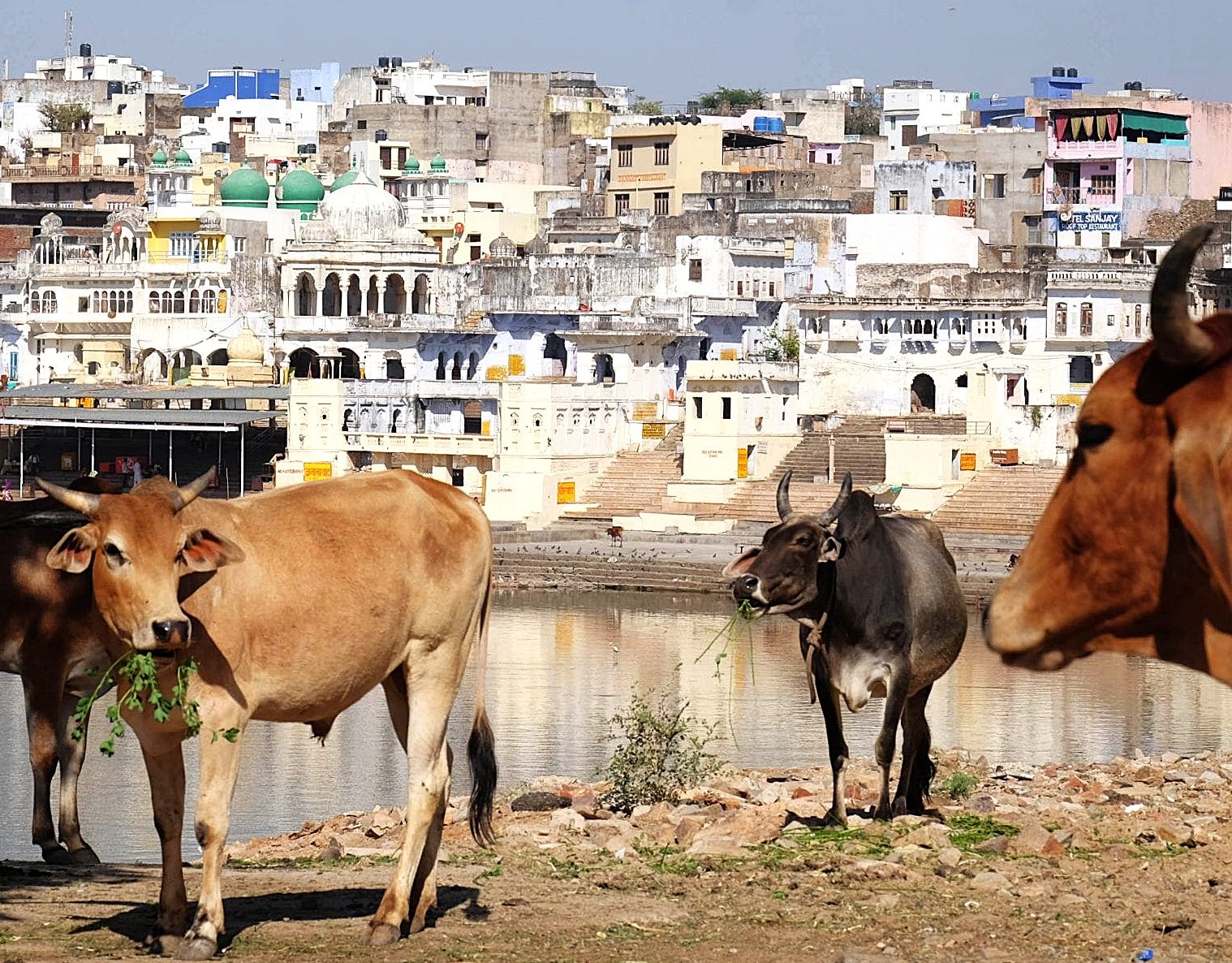
Master craftsman Vishwakarma designed the original Brahma Temple in 550 CE, incorporating sacred geometries that modern architects still study. Later artisans Raja Ram in 1450 and Gopi Krishna in 1510 added marble work and silver doors. The temple's proportions follow cosmic ratios while its spire aligns with Brahma's star Capella. Inner sanctums create natural resonance chambers that amplify prayers. Advanced mathematical principles ensure acoustic perfection throughout the complex, demonstrating ancient engineering wisdom.
Desert Rose Oil
Pushkar supplies 60% of India's rose essence, with local gardens cultivating specific varieties mentioned in ancient texts. Morning dew collection follows precise timing based on lunar cycles, producing oils used in sacred offerings and traditional medicines. The Damask and Centifolia roses flourish in desert conditions, their petals gathered before sunrise when essential oils peak. These fragrant blooms feed both commerce and devotion, generating income for over 2,000 local families while maintaining spiritual purity.
Meet The Locals
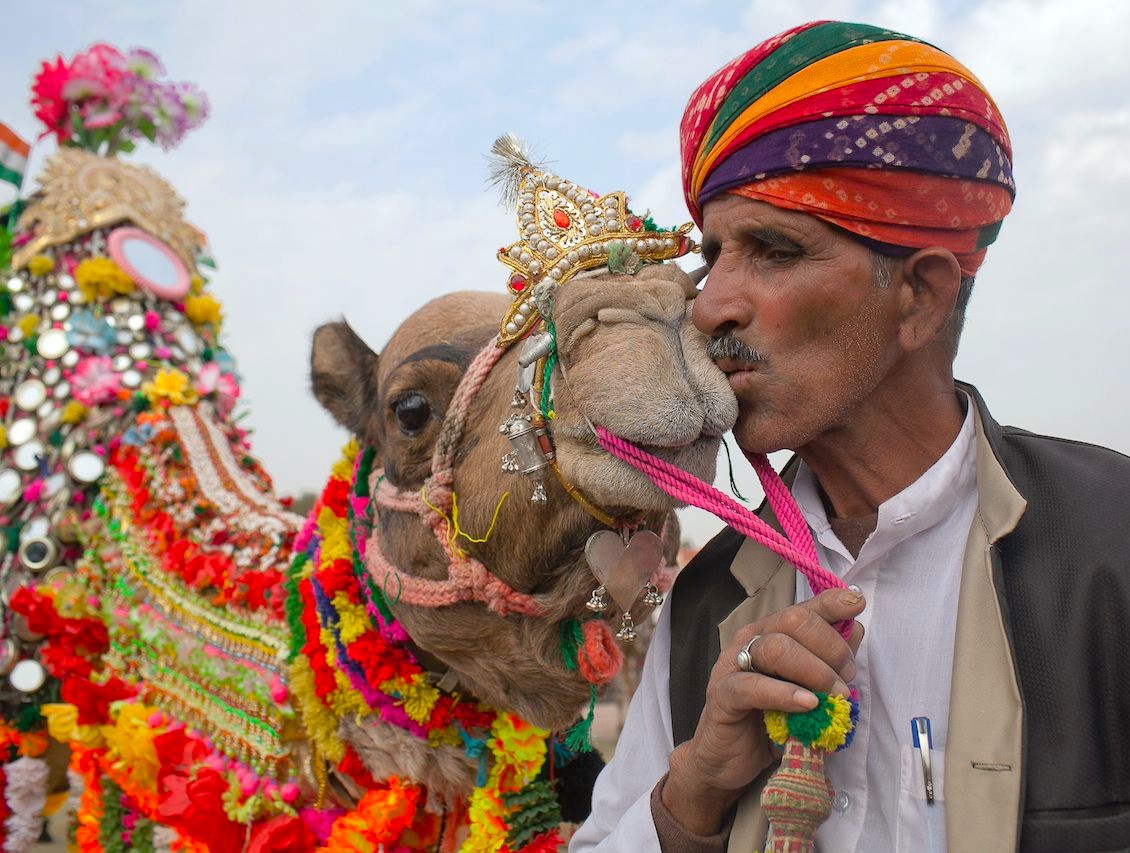
Pushkar unfolds with a gentle, spiritual rhythm. Mornings begin with devotional chants echoing from hundreds of temples surrounding the sacred lake. Locals and pilgrims descend the ghats for morning rituals, offering prayers and flowers to the holy waters. Throughout the day, the town is a quiet hum of activity. Sacred cows wander freely through narrow lanes, respected and fed by the community. Small shops in the bustling market open, displaying colorful textiles, silver jewelry, and spices, inviting exploration.
Festivals of Celebrations
The Pushkar Fair runs from October 25 to November 15 annually, combining spirituality with Asia's largest camel trading event. Kartik Purnima on November's full moon sees thousands gather for sacred dips believed to cleanse sins. The five-day Brahmotsava festival in January celebrates temple founding with classical music performances from 6 AM to 10 PM daily. Each festival follows precise astronomical timings calculated by temple astronomers, maintaining traditions spanning over a millennium.
Honoring the Sanctity of Pushkar
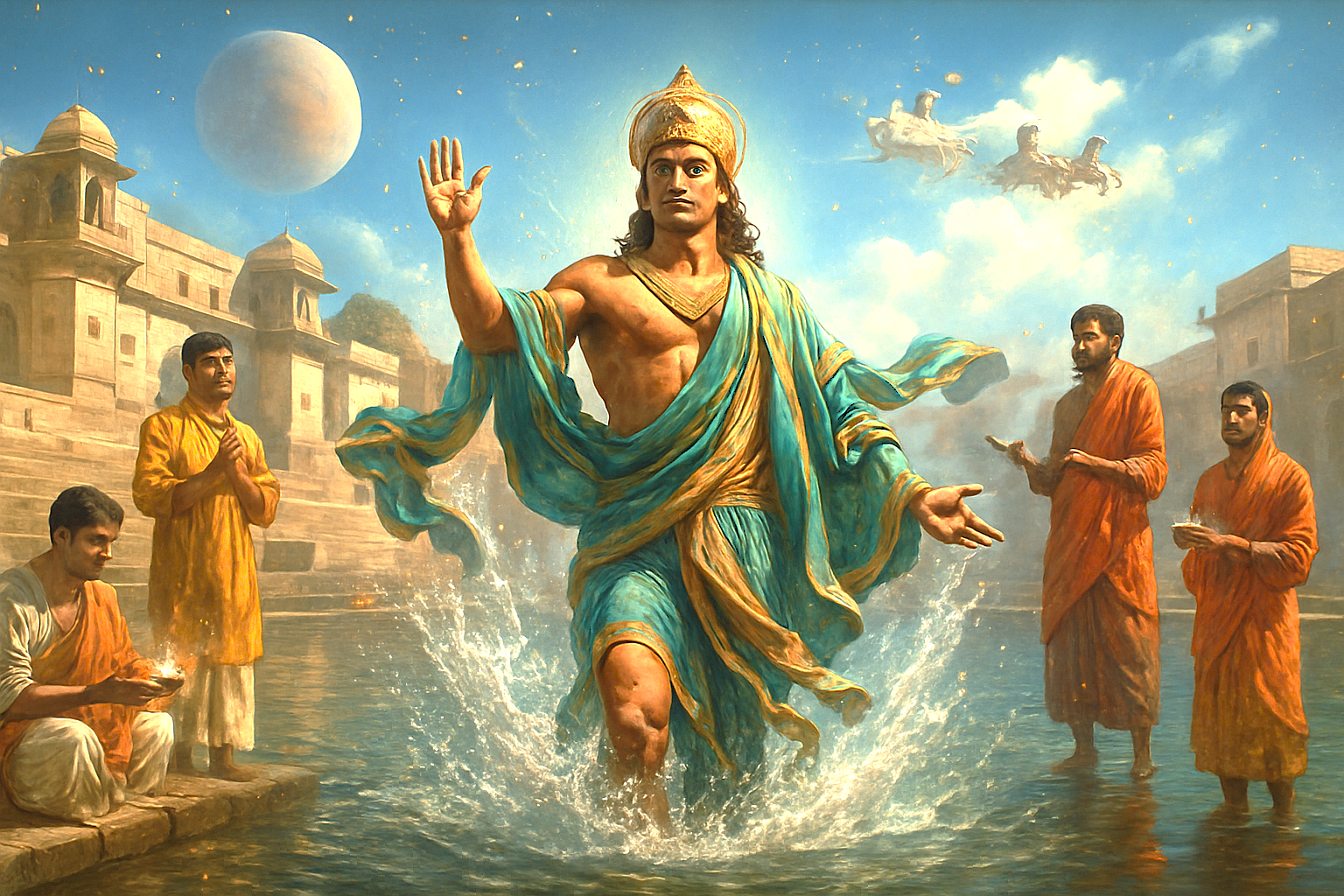
Pushkar is one of India's most sacred cities, revered as a holy pilgrimage site. It is home to one of the world's very few temples dedicated to Lord Brahma, the creator god in Hinduism. Because of its profound religious importance, a peaceful and devout atmosphere is carefully maintained throughout the town. To honor this sacredness and preserve the spiritual purity of the holy city, the consumption of meat, eggs, alcohol, and drugs is strictly prohibited.
Ancient Alignments: Sacred Sound and Geometry
Temple construction followed advanced mathematical principles ensuring acoustic perfection throughout sacred spaces. Main halls resonate at 432 Hz, aligning with Earth's natural frequency and promoting Solefeggio healing vibrations. The Brahma Temple's spire height corresponds to planetary positions while step counts match lunar cycles of 28 days. Sacred geometry creates energy vortexes at specific meditation points, where stone arrangements generate beneficial frequencies that enhance spiritual practices.
Hidden Passages: Underground Mysteries
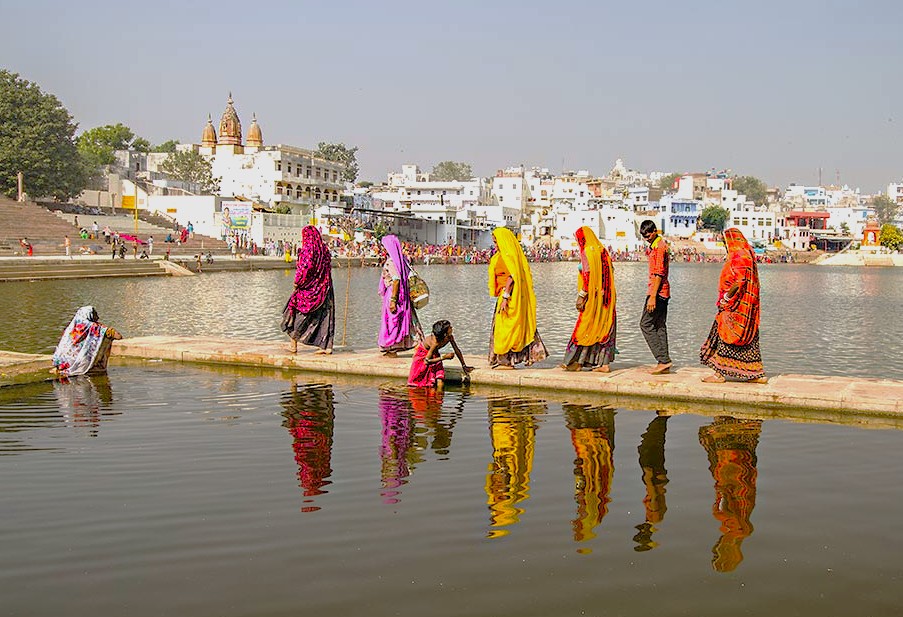
Ancient texts describe tunnel networks connecting major temples through underground passages carved from solid rock. Secret chambers allegedly hold sacred manuscripts written on palm leaves and copper plates, accessible only to senior priests. Some passages supposedly lead to meditation caves in surrounding Aravalli Hills where saints practiced penance. The Sharma and Purohit families maintain oral histories of these hidden spaces.
Where Spirituality Meets Serenity
Discover Pushkar, a serene lakeside town in Rajasthan, India, nestled between Jaipur and Agra on the way to the Taj Mahal. Marvel at the sacred Pushkar Ghat and the legendary emergence of Lord Brahma. Soak up the relaxed pace, spend time in chilled-out cafés and enjoy the unique local music scene, including the soothing sounds of famed artist Prem Joshua. In the evenings, stroll along vibrant markets for surreal shopping experiences and take in the laid-back, bohemian vibe that defines Pushkar.
The Living Traditions
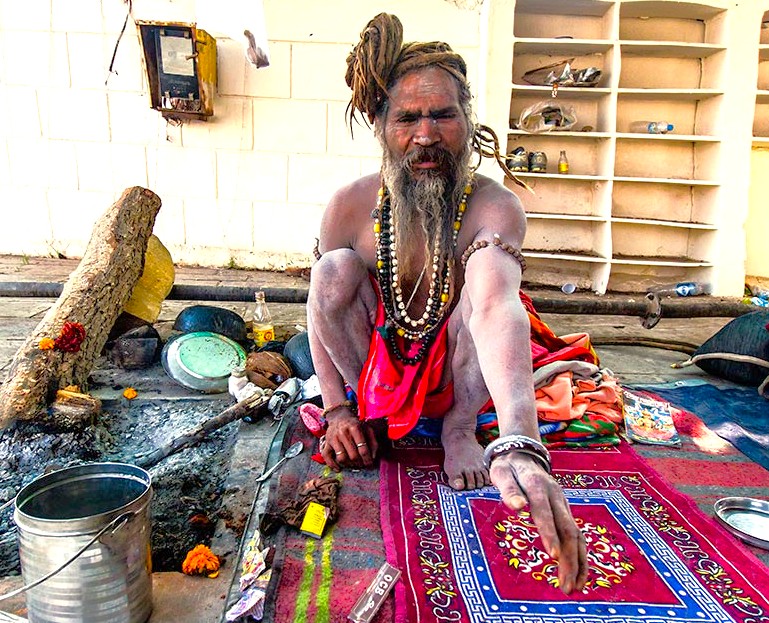
Today's 21,965 residents maintain centuries-old traditions while adapting to contemporary needs through sustainable tourism and traditional crafts. Unesco recognition helps preserve ancient structures while generating income for local families. Young priests learn Sanskrit alongside English, ensuring knowledge transmission continues. Sacred practices evolve naturally while maintaining core spiritual essence, as morning prayers begin at sunrise, evening ceremonies illuminate the lake with floating lights, connecting past and present in devotion.
Let Your Next Chapter Begin Here, Join Us
This serene town in Rajasthan, India, invites you to slow down completely. We will enjoy aromatic coffee in cozy lakeside cafés, letting the tranquil music wash over us. The air is filled with a sense of peace, a unique blend of spirituality and bohemian charm. You will love the relaxed atmosphere, where every moment is an invitation to unwind, connect, and simply be. It's an unforgettable experience.
The Mutual Benefits of Exchange
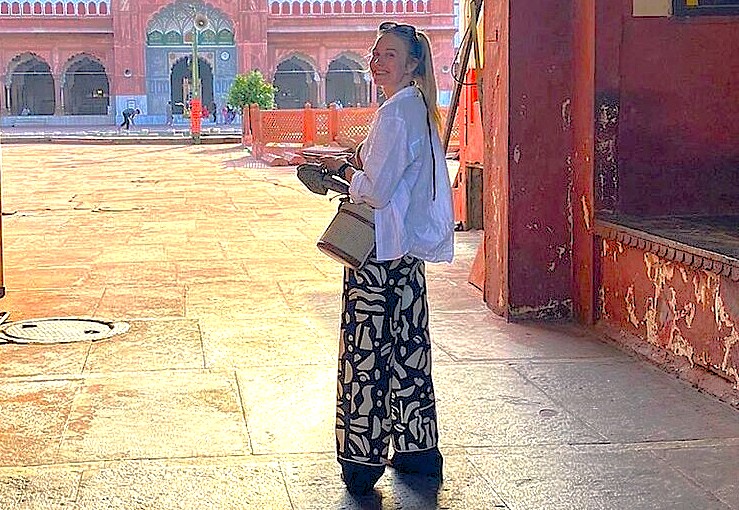
In Pushkar, the true magic lies in the heartfelt exchange between locals and visitors. Guests gain more than a simple holiday; they receive authentic insights into a rich culture, share genuine smiles, and create memories that last a lifetime. In return, the community receives not just vital economic support, but also the joy of sharing their heritage and seeing their home appreciated through new eyes. This beautiful, mutual respect enriches everyone, ensuring that Pushkar's unique spirit thrives, making every interaction meaningful and beneficial for all.